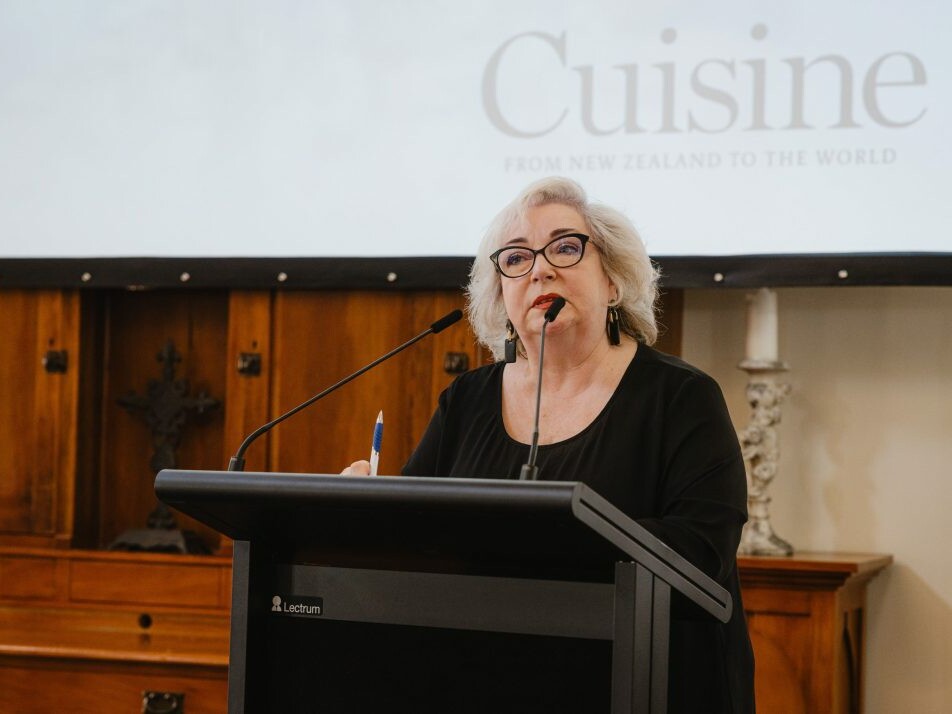A call for less radicalisation and greater understanding.
We all have our own approach to how and when we consider an issue and whether we will do something about it. The debate at the plate between meat eaters and non-meat eaters is not a recent phenomenon, with the earliest reliable evidence of practising vegetarians dating from sixth-century bc Greece, where the vegetarian diet was called ‘abstinence from beings with a soul’. Whether you are for, against, on the fence or indifferent, the conversation has now reached such intensity that it must surely be time for the position of indifference to be made redundant?
I remember my great horror when, just as I took up my dream position as editor of Cuisine, the husband decided to give up meat. His decision (for ethical and health reasons) forced me to think about what that meant for me personally and how it would affect our family dinner table, not to mention our restaurant reservations. His decision to eat only animals he has killed himself has been a great advantage with regards to our seafood intake, and I am forever grateful for the privilege of receiving fish that comes straight from the ocean, via the husband’s kayak and chilly bin, to our dinner plate. However, he is sadly underperforming on the meat front, and I don’t see any cows turning up in our backyard looking to become dinner anytime soon.
So, as the prospect of eating only meat that has been killed by my husband is not an option for me, and the prospect of killing my own meat is still not one I am ready to consider (and you should hear the arguments around our dinner table on that one), I have landed in a place where I think very hard about what meat my son and I will consume and the consequences of this for the future of our planet. That process empowers me to make better decisions about how I shop, cook and eat, and I know I am not alone here. We all have to make food choices that will depend on our culture, our finances, our skills in the kitchen and our own personal ethics, and an important ingredient in that mix is where we live.
New Zealand, thankfully, is not the United States, where Condé Naste food site Epicurious announced in April that it would stop publishing beef recipes in an effort to encourage more sustainable cooking. In May, Daniel Humm, chef and owner of Eleven Madison Park, the New York restaurant that has been called the best in the world, announced that after its enforced closure during the pandemic he will reopen with a plant-based menu. Cow’s milk will still be an option for customers during the meal’s coffee and tea service, and his London restaurant, Davies and Brook at Claridge’s Hotel, will still offer plenty of red meat options.
Of course, EMP is not the first restaurant in the world to switch to a plant-based menu, but the decision has caused great speculation around whether their customers will be willing to shell out the same price for an elaborate plant-based meal as they would for one that includes premium meat or seafood. Which brings us to the question of perceived value. An interesting vegetarian menu without the traditional proteins can be much more labour-intensive and expensive to produce, and yet the pricing at most vegan/vegetarian restaurants – or even at our vegetable counter, for that matter – does not reflect this. Are we ready to pay more for our vegetables?
As for the question of meat, the world still has an appetite for it, especially when it is cheap, and for this, beef in particular takes a bashing. We cannot shop our way out of all the issues, but we can put our dollars where they will have impact by choosing to eat the best we can afford and selecting meat that has been produced using sustainable and ethical farming and processing practices. Let’s not eat meat at every meal, and when we do, let’s eat a little less, leaving room for those amazing vegetables – which by now should be receiving equal billing on our plates. Let’s work a little wild meat into our menus, and let’s also remember that it’s how we humans manage things that really matters. We already know this; the question is, will we do it?
Instagram @kellibrett
Facebook @KelliBrettCuisine
Twitter @kellibrett
Linkedin @KelliBrett




